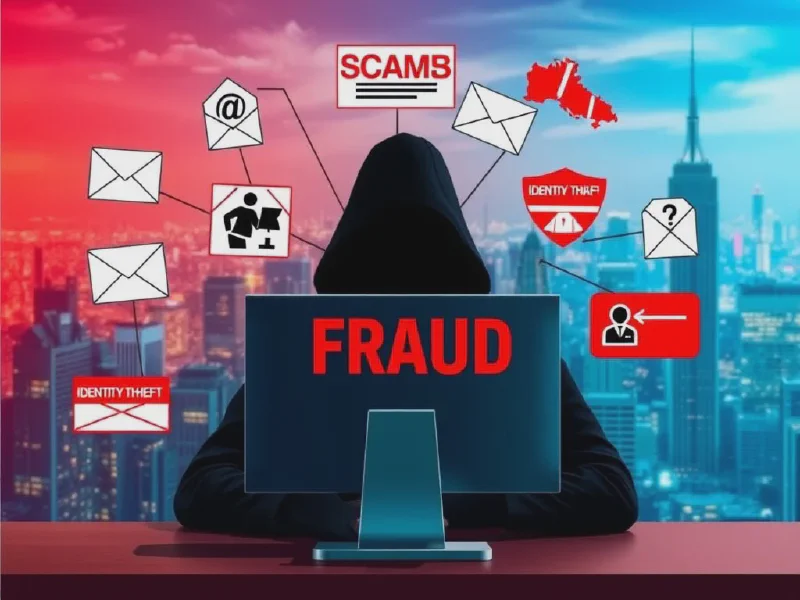Scam Awareness Guide: Identify and Avoid Common Fraud Schemes

Scam Awareness: Recognizing and Preventing Fraudulent Activities
Scam Awareness is a critical aspect of personal and financial security in today's digital age. With the rise of technology, scams have become increasingly sophisticated, making it essential for individuals to recognize and understand the different types of scams that exist. Through awareness and education, we can empower ourselves to identify potential threats and take proactive measures to protect our financial and personal information.
Scam Awareness involves not only recognizing the signs of scams but also understanding the tactics employed by scammers. From phishing emails to telephone scams, fraudsters utilize a variety of methods to deceive their victims. By staying informed and vigilant, individuals can significantly reduce their risk of falling prey to these fraudulent activities.
The importance of Scam Awareness cannot be overstated, as scams can lead to severe financial losses and emotional distress. It is crucial for everyone to educate themselves about the different types of scams and the common indicators of fraudulent activity. By fostering a culture of awareness, we can create safer communities and minimize the success of scams.
In addition to educating ourselves, it is vital to share knowledge about Scam Awareness with friends and family. Many individuals, especially the elderly, may be more vulnerable to scams due to a lack of awareness or understanding of technology. By discussing these topics openly, we can help them recognize potential threats and encourage them to safeguard their personal information effectively.
The journey to effective Scam Awareness begins with understanding the myriad of scams that exist. By arming ourselves with knowledge about these threats, we can better navigate the complexities of the digital world and protect ourselves from becoming victims of fraud.
Types of Common Scams
Online scams and phishing attacks are prevalent forms of fraud that utilize the internet to deceive users. Scammers may impersonate legitimate companies in emails or on websites, tricking individuals into providing personal information or financial details. Vigilance when opening emails and verifying web links is essential to avoid falling victim to these scams.
Telephone scams and robocalls often involve scammers impersonating government officials or tech support agents to extract money or personal information. They may use high-pressure tactics and create a sense of urgency to manipulate victims. It's important to be skeptical of unsolicited calls and to hang up if something feels off.
Investment fraud and Ponzi schemes prey on individuals looking for financial growth. Scammers often promise high returns with little risk, enticing victims to invest their money. Due diligence and thorough research are critical before committing to any financial opportunity to avoid being scammed.
Enhancing community knowledge through proactive measures is essential for promoting Scam awareness and protecting individuals from fraud.
Lottery and prize scams inform victims that they have won a prize but must pay taxes or fees upfront. These scams can be particularly enticing as they prey on the hope of winning. Remember, if you didn't enter a lottery or contest, you can't win it.
Romance scams and social engineering involve scammers building a connection online, often through dating apps, before exploiting their victims emotionally and financially. They typically gain trust and then request money for various fabricated reasons. Always be cautious of anyone asking for money, especially if you haven't met them in person.
Signs of a Scam
Unsolicited offers and urgency tactics are common signs of scams. If an offer seems too good to be true or pressures you to act quickly, it's wise to take a step back and evaluate the situation further.
Requests for personal information, such as Social Security numbers or bank details, should raise red flags. Valid organizations rarely seek sensitive information through unsolicited communications.
The phrase 'too good to be true' is often applicable to scam claims. If an investment promises unusually high returns with low risk, it's a warning sign that it may be a scam.
A lack of verifiable information is another common indication of a scam. Authentic businesses and organizations provide clear contact information and are easily verified online.
Pressure to act quickly is a red flag in any transaction. Scammers create a false sense of urgency to push victims into making hasty decisions that they might later regret.
How to Protect Yourself
Using strong passwords and two-factor authentication is one of the best defenses against scams. Unique, complex passwords make it difficult for scammers to gain unauthorized access to your accounts.
Regularly monitoring financial statements can help identify unauthorized transactions quickly. Prompt detection of fraud allows for faster action and recovery of lost funds.
Educating others about scams is an effective way to spread awareness and increase collective vigilance against fraud. Share your knowledge with family and friends to help protect them.
Reporting suspected scams to authorities, such as the Federal Trade Commission or local law enforcement, can help track down and prosecute scammers, potentially preventing further victimization.
Keeping software updated and secure is crucial. Ensure that antivirus and anti-malware programs are installed and updated regularly to protect against potential threats.
What to Do If You Fall Victim
If you believe you've been scammed, immediate steps include securing your accounts, such as changing passwords and contacting your bank to freeze or monitor accounts for any suspicious activity.
Reporting a scam to authorities is essential for both recovery and prevention. Provide as much detail as possible to help law enforcement track and stop the scammers.
Recovering stolen identity or funds may require contacting financial institutions, credit bureaus, and potentially a legal representative. Act quickly to lessen the impact of the fraud.
Support resources and helplines are available for victims of scams. Many organizations offer advice and support to help individuals navigate the aftermath of being scammed.
Legal actions you can pursue include consulting with a lawyer to understand your options based on the nature of the scam and the losses you have incurred.